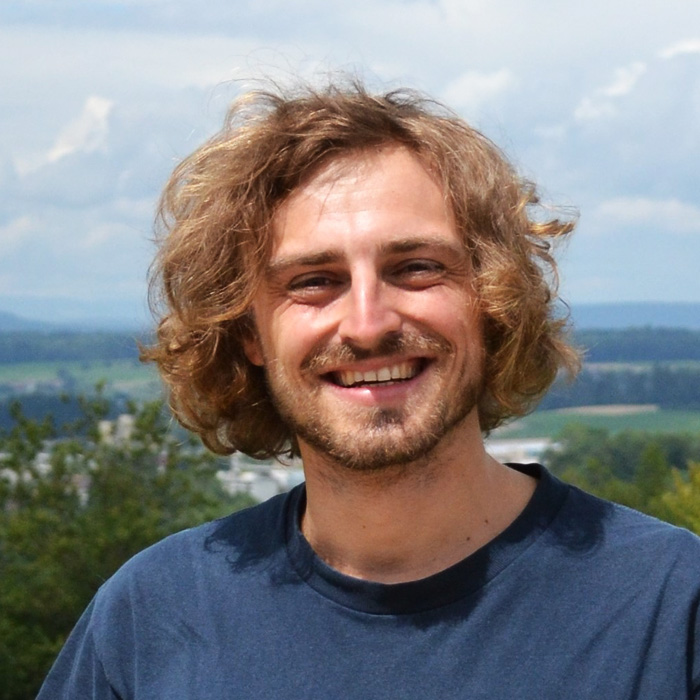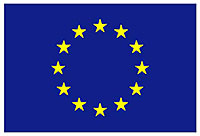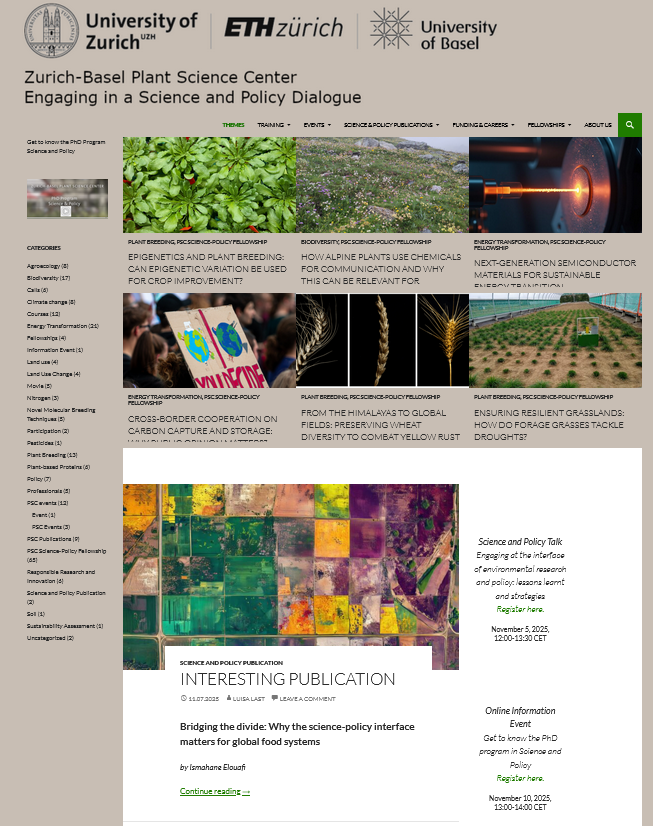Land Use Diversity Effects on the Functioning of Anthropogenically-Dominated Landscapes

Fellowship Duration: Mar 2021 - Jan 2025
PhD Student: Simon Landauer (LinkedIn)
Principal Investigator: Prof. Dr. Pascal A. Niklaus, Departement of Evolutionary Biology and Environmental Studies, University of Zurich, Switzerland
Project Partner: Dr. Eva Spehn, Swiss Academy of Sciences, Forum Biodiversity, Berne, Switzerland
Research Fields: Ecology Biodiversity Sciences
Project Description
World-wide, accelerated structural change alters diversity, composition, and spatial configuration of land use patterns, with unknown consequences for landscape functioning. Recent research suggests that landscape functioning can be promoted by novel types of diversity effects that arise in mosaics of different land uses but not in the smaller, relatively uniform plots of biodiversity-ecosystem functioning experiments. However, the ubiquity of such landscape-level diversity effects and the specific mechanisms that underpin these remain unknown.
My PhD research project addresses this knowledge gap by investigating remotely sensed landscape productivity in different biomes at large spatio-temporal scales and under a wide range of environmental conditions. Adopting study designs and concepts from experimental community ecology, we test whether effects comparable to the well-established species-diversity effects in small plots also occur when larger units such as entire ecosystems interact at the landscape scale. To investigate this hypothesis, we analyze the association of landscape diversity and landscape-level functioning using multispectral satellite images and land-cover information. The underlying mechanisms are investigated with statistical effect partitioning techniques, with trait-based approaches, and with semi-mechanistic, process-based models.
Should such landscape-level effects be important, as is expected, this would call for inclusion of these additional scales in the analysis and modeling of diversity-functioning relationships. A sound understanding of interactions among ecosystems within a landscape would open opportunities in management and conservation. To explore their potential, historic land use changes will be evaluated in connection with the consequences for landscape functioning they might have had in the past.
The project’s vision is a science-informed land management approach that leverages landscape-scale mechanisms to enhance and stabilize landscape-wide functioning, similar to the way species diversity is nowadays managed to protect local ecosystem functions and services.
This fellowship is hosted by the Zurich-Basel Plant Science Center.
Activities and Publications
Doctoral thesis Landscape Diversity Effects on the Functioning of Anthropogenically-Dominated Landscapes
PSC Blog article (2024) on Landscape Diversity Begets Landscape Functioning -Relevance for policy implementation
PSC Blog article (2024) on Exploring Positive Futures: Insights from an IPBES Youth Workshop on Biodiversity
Co-authored peer-reviewed article in Communications Earth & Environment (2025) on Landscape diversity promotes landscape functioning in North America
Conference poster at the British Ecological Society Annual Meeting 2024 (Liverpool, England, Dec 2024)
Conference session moderation at the World Biodiversity Forum 2024 (Davos, Switzerland, Jun 2024)
Conference talk at the World Biodiversity Forum 2022 (Davos, Switzerland, Jun – Jul 2022)
Conference poster at the British Ecological Society Annual Meeting 2022 (Edinburgh, Scotland, Dec 2022)
Selected participant in the Regional youth workshop on IPBES for Europe and Central Asia (Isle of Vilm, Germany, Nov 2023)
Guest talk at the Department for Geography and Spatial Research, University of Graz (Graz, Austria, Oct 2024)
Guest talk at the Cedar Creek Ecosystem Science Reserve Seminar Series (East Bethel, Minnesota, USA, Jun 2023)
Talk at the Behavior, Ecology, Environment and Evolution Seminar (BEEES) (Zurich, Switzerland, Dec 2022)
Work at exhibition of URPP Global Change and Biodiversity at Scientifica (Impressions) (Sep 2023)
Work at exhibition of URPP Global Change and Biodiversity at Scientifica (Impressions) (Sep 2021)
Leader of the Cutting Edge Research Club class (ECO 397) at the University of Zurich (2021-ongoing)
Assistant in the organisation of the Science and Policy Stakeholder Event on Zukunft der Landnutzung in der Schweiz unter dem neuen Globalen Biodiversitätsrahmen (COP 15) (Zurich, Switzerland, Sep 2023)
Body representative of Junior Researchers at the Department of Evolutionary Biology and Environmental Studies
Secondment and Research Stay
During his secondment at the Swiss Biodiversity Forum Simon engaged in ongoing work Swiss Academy of Sciences. He got insights into the projects and practice of communicating scientific findings to stakeholders in politics and industry. During his secondment Simon worked on a project to understand landscape diversity change in Switzerland. Another task was to assist in interviews with investment representatives on the question of biodiversity goals and criteria for real-estate investment. Further, Simon helped in the Swiss Forum on Conservation Biology (SWIFCOB) 24, moderating a World Cafe and exchanging with stakeholders on integrating biodiversity goals in Switzerland.
Duration: Oct 2023 - Jan 2024
Research stay abroad: Visiting researcher at the University of Minnesota in Minneapolis-St. Paul, Minnesota, United States. Working on the partitioning of landscape-diversity effects in the Isbell Lab. During my stay, I also actively engaged in work at the Cedar Creek Ecosystem Science Reserve including a talk for undergraduate students at the local seminar series.
Duration: Apr - Jun 2023
Stakeholder Workshop
The stakeholder workshop took place on September 26, 2022 at the premises of the Swiss Academy of Sciences (SCNAT). The discussion and how they link to the research project have been summarized in the PSC Blog article (2024) on Landscape Diversity Begets Landscape Functioning -Relevance for policy implementation



